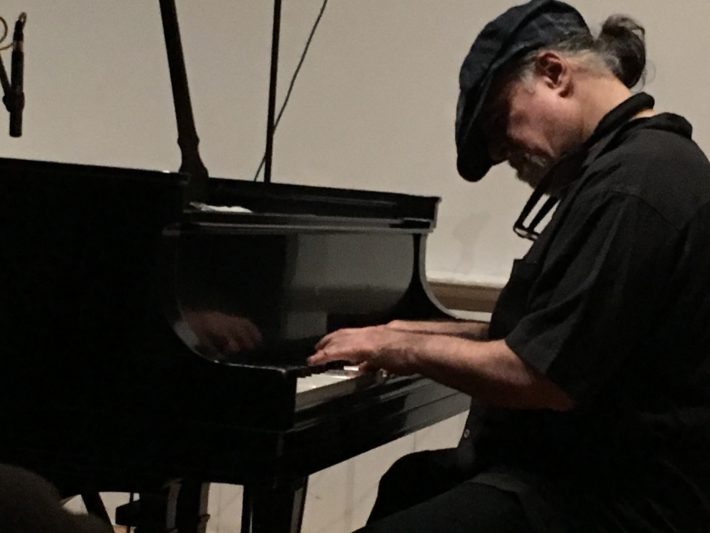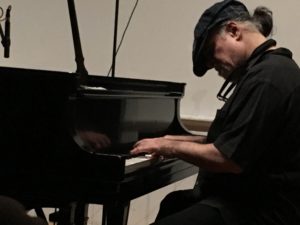
The scientist Max Planck said, “When you change the way you look at things, the things you look at change.”
That’s what happened to me at a recent concert when I sat just 10 feet away from two jazz piano masters playing on two grand pianos. Sitting so close, I could not only hear their music; I could feel it. I could see the musicians’ faces and fingers. I could watch their fingers on the keyboards and experience the music being pressed out of the keys. It was alive, engaging, absorbing.
Suddenly I changed the way I look at a piano. And when I did, the piano had new meaning….
To hear this as a musical narrative, CLICK HERE.
 Pianist Dave Frank, who together with Harvey Diamond Performed
Pianist Dave Frank, who together with Harvey Diamond Performed
I saw the 88 keys on the piano as a life span…of a music set, or a relationship, of a person’s life. Eighty-eight is getting to be more and more the average years a person lives.
Then I focused on the keys themselves. There were taller black keys and lower white keys, low tones transitioning to high tones, all fully integrated. It’s true you can play thousands of songs on just the white keys; and Irving Berlin composed all 1,500 of his songs using only the black keys because he couldn’t read or write music. So you could have a lot of music in your life span using either black or white keys.
But in life as in music, it’s only when you use the black and the white keys together to add the sharps and the flats of life that the quality changes. The key signature changes. It becomes richer.
Life typically isn’t all black or white. It’s full of ups and downs; sharps and flats; good and bad times, high and low times. And when the musicians included all the keys of the full keyboard, the music changed; their options changed, the quality and the texture of the music changed and became richer.
Most of the songs performed were American standards. The ordinary life of a piano performance. They started slow and easy, familiar and recognizable. But then came the improvisational parts; with a new riff or a line from prior jazz great. The improvisations changed the flavor of the song – like seasoning changes stew. It made the music newer, richer, deeper, and more savory.
Throughout the duration of the concert, the pianists were immersed in their 88 keys. They totally lived in the present. The whole world stopped, except for the note being played and the next feeling that was about to be expressed.
And the two piano players didn’t play against each other. They listened to each other, and then responded; they gave and they received. So the integration of those two keyboards became a living conversation; and neither knew where it would go or how it would end, or when it would end. They just knew when it was done, and it was time to stop.
Life is like a piano keyboard. Filled with choices and unexpected ups and downs, sharps and flats, all requiring a sudden change to a different key or note that we never anticipated. And the lesson learned from a piano can be a guide to creating a life that is rich, improvisational, integrated, and constantly renewing. There’s a lot you can learn from a piano.



